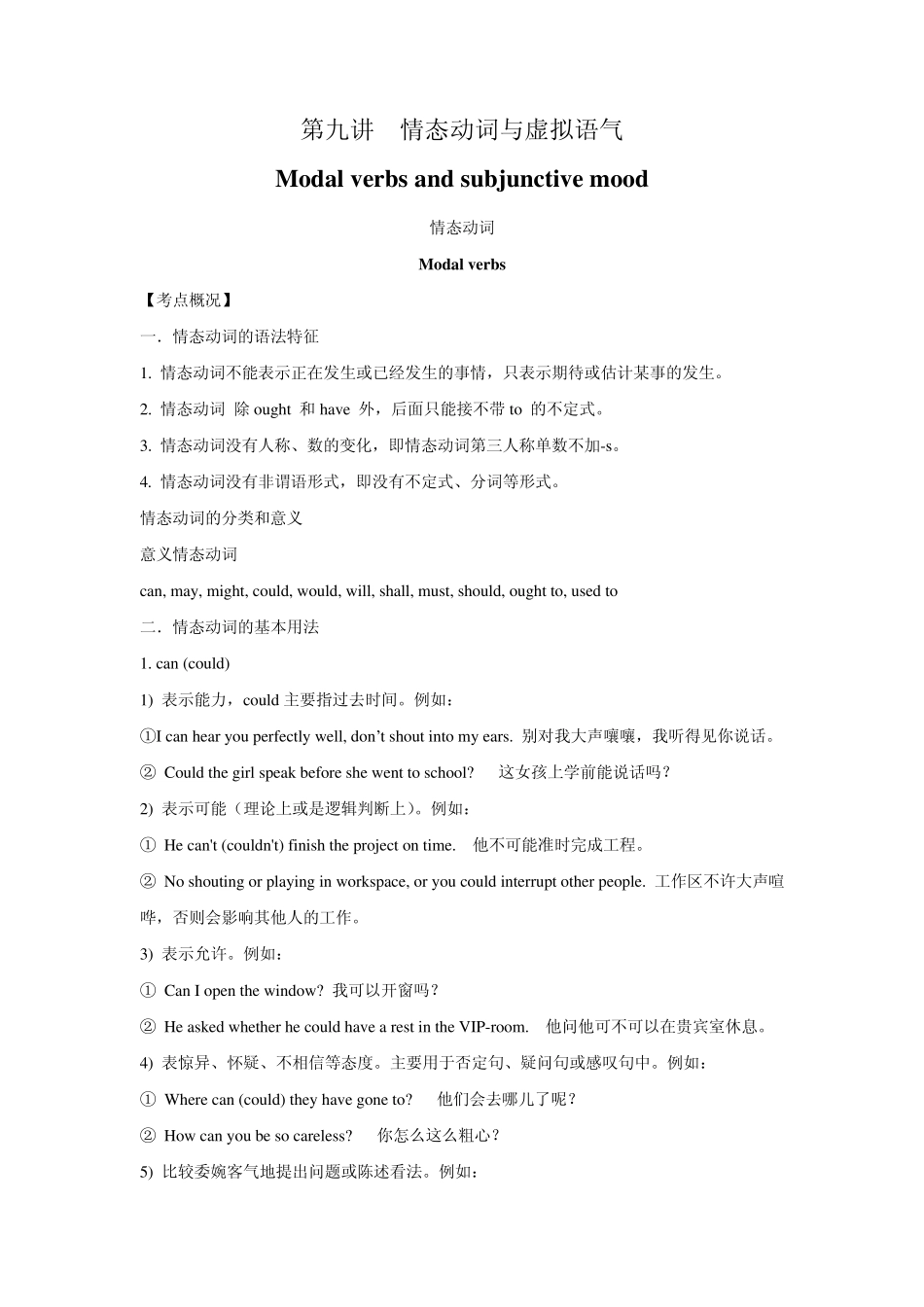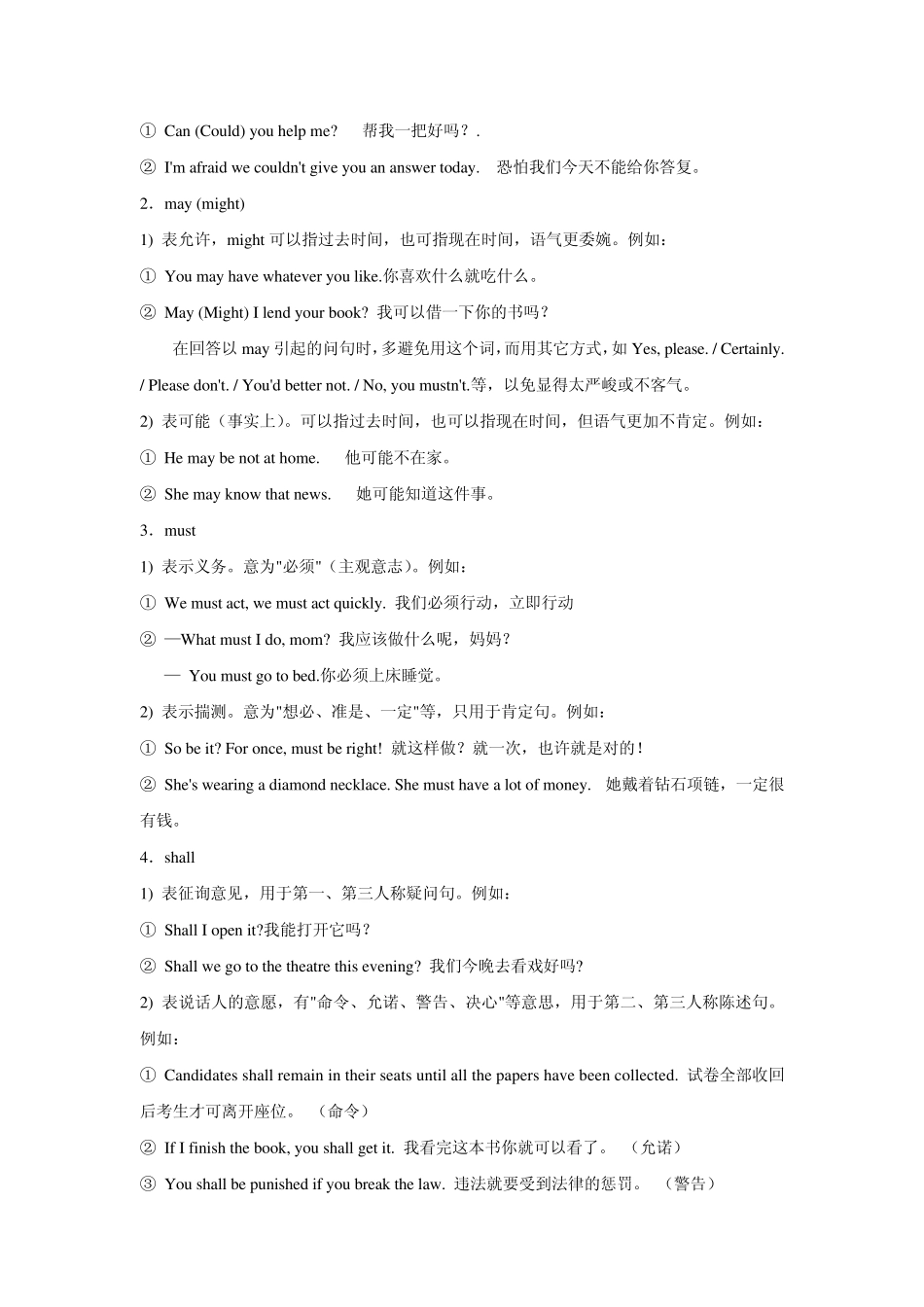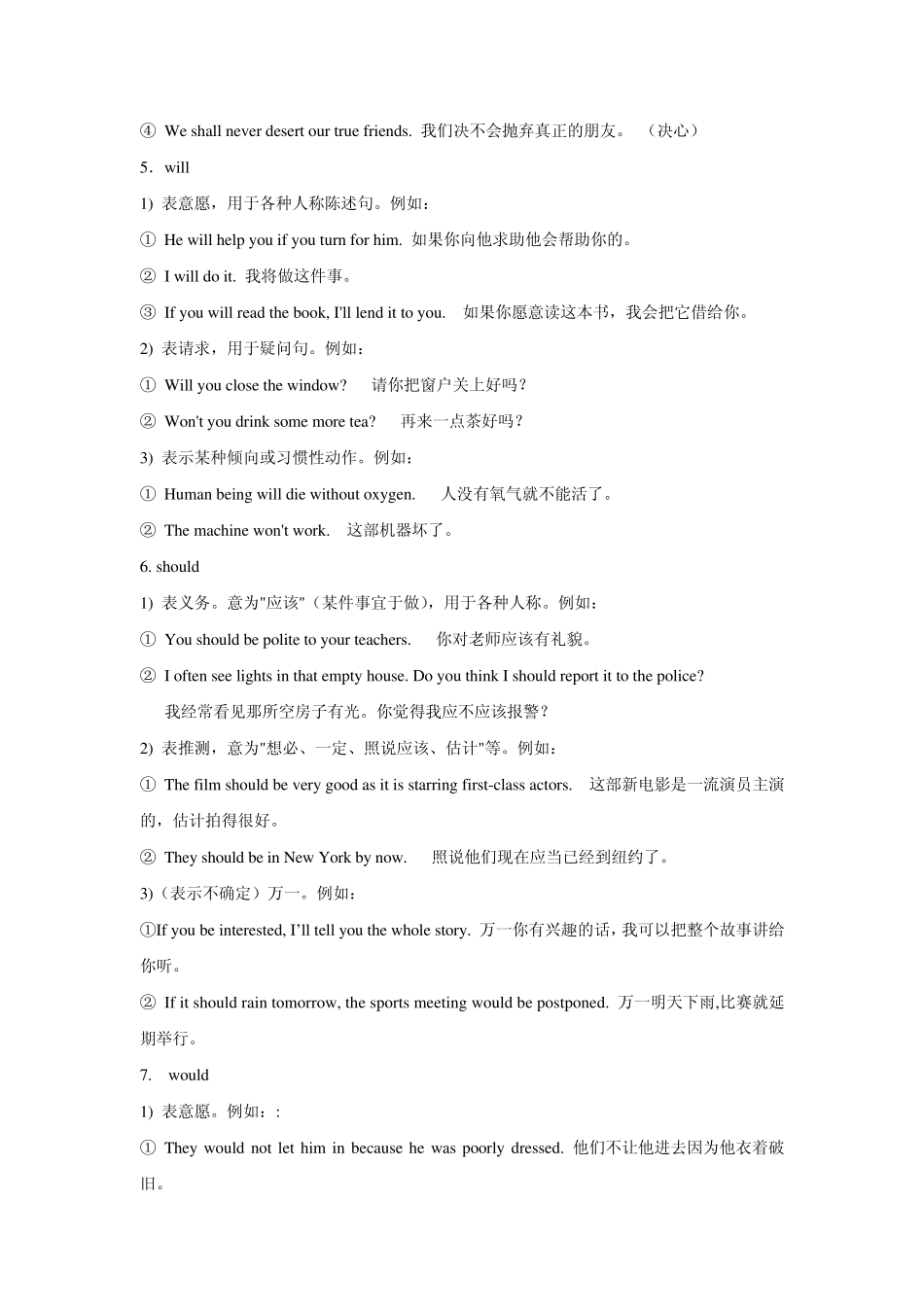第九讲 情态动词与虚拟语气 Modal verbs and subjunctive mood 情态动词 Modal verbs 【考点概况】 一.情态动词的语法特征 1. 情态动词不能表示正在发生或已经发生的事情,只表示期待或估计某事的发生。 2. 情态动词 除ought 和have 外,后面只能接不带to 的不定式。 3. 情态动词没有人称、数的变化,即情态动词第三人称单数不加-s。 4. 情态动词没有非谓语形式,即没有不定式、分词等形式。 情态动词的分类和意义 意义情态动词 can, may, might, could, would, will, shall, must, should, ought to, used to 二.情态动词的基本用法 1. can (could) 1) 表示能力,could 主要指过去时间。例如: ①I can hear you perfectly well, don’t shout into my ears. 别对我大声嚷嚷,我听得见你说话。 ② Could the girl speak before she went to school? 这女孩上学前能说话吗? 2) 表示可能(理论上或是逻辑判断上)。例如: ① He can't (couldn't) finish the project on time. 他不可能准时完成工程。 ② No shouting or playing in workspace, or you could interrupt other people. 工作区不许大声喧哗,否则会影响其他人的工作。 3) 表示允许。例如: ① Can I open the window? 我可以开窗吗? ② He asked whether he could have a rest in the VIP-room. 他问他可不可以在贵宾室休息。 4) 表惊异、怀疑、不相信等态度。主要用于否定句、疑问句或感叹句中。例如: ① Where can (could) they have gone to? 他们会去哪儿了呢? ② How can you be so careless? 你怎么这么粗心? 5) 比较委婉客气地提出问题或陈述看法。例如: ① Can (Could) you help me? 帮我一把好吗?. ② I'm afraid we couldn't give you an answer today. 恐怕我们今天不能给你答复。 2.may (might) 1) 表允许,might 可以指过去时间,也可指现在时间,语气更委婉。例如: ① You may have whatever you like.你喜欢什么就吃什么。 ② May (Might) I lend your book? 我可以借一下你的书吗? 在回答以may引起的问句时,多避免用这个词,而用其它方式,如Yes, please. / Certainly. / Please don't. / You'd better not. / No, you mustn't.等,以免显得太严峻或...


